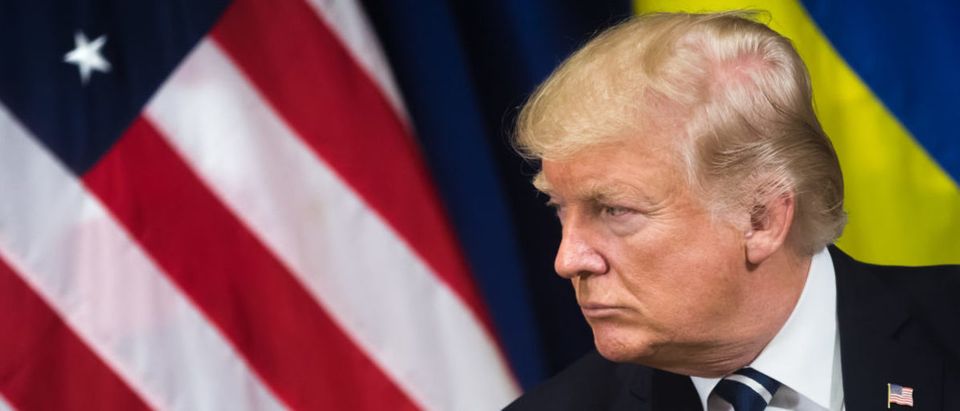President Trump’s supporters will point to his foreign policy in the Middle East and Korea as evidence of success. There is another, often overlooked initiative that underlines the Trump administration’s success in foreign policy: the use of “strategic dialogues” as an instrument for success. The U.S. uses strategic dialogues to indicate a desire for improved bilateral relations, extend influence, and maintain stability and a legitimate international order.
The White House has recently initiated strategic dialogues with Qatar and Greece. It has also enhanced relations with Ukraine through the same mechanism. The administration’s call to boost cooperation with key allies through launching new bilateral strategic dialogues is an important and welcomed action. It has the potential to solidify mutually beneficial cooperation and to be helpful in achieving key foreign policy goals.
The Trump administration, together with its Greek counterpart, is launching the first-ever U.S.-Greece Strategic Dialogue, to be held mid-December in Washington, D.C. These high-level meetings will work to improve economic, military, and security cooperation between the U.S. and Greece. Regional cooperation, especially in the energy sector, is expected to dominate the discussion. Developing stronger bilateral ties with Greece will certainly reaffirm the U.S. position in the region.
This is a historic milestone in the relationship between the two countries that has had its ups and downs. Greece is emerging as not only a valuable NATO partner and ally in Southeast Europe and the Western Balkans, but also an important strategic partner that serves as a regional “pillar of stability,” as Wess Mitchell, U.S. assistant secretary of State for Europe and Eurasian affairs, proclaimed in June.
The U.S.-Greece strategic dialogue demonstrates a comprehensive policy that adds on to Greece’s decades-old status as a NATO ally. Business relationships are moving upward, particularly in energy and security, with significant potential in IT and information and communication sectors. The U.S. played a key role in the recently-brokered name change agreement between the (soon to be called) Republic of North Macedonia and Greece, paving way for the former to join NATO. Russia tried to stop this and two of its diplomats were expelled by the Greek government for undermining national security.
On Jan. 30, the Trump administration held its inaugural strategic dialogue with Qatar. Now, the strategic dialogue is well-rooted and expanding. In June 2017, the Saudi-led coalition imposed a blockade on Qatar, presenting the country with 13 demands to include shutting down of Al Jazeera and severing ties with both Sunni and Shiite regional Islamist groups. Given these current rifts within the Gulf region, the U.S.-Qatar dialogue was a timely step in the right direction. Qatar (like the rest of the Gulf) is an important U.S. ally and host to our largest military base in the Middle East, Al Udeid Air Base. The blockade has had a significant humanitarian impact, and has separated families, especially those where one family member is Qatari and the other from the UAE, Saudi Arabia, or other Gulf country. Qatar managed to bypass the resulting economic slow-down by expanding its own agricultural production and by fostering stronger ties with Asian countries and the West. Washington is eager to see divisions in the Gulf subside. Establishing a strategic dialogue with Qatar has sent a clear message to the region. The U.S. has praised Qatar’s role in fighting terrorism and the two countries regularly hold Counterterrorism Dialogues.
A third example is U.S.-Ukraine relations. The White House stepped up efforts with Ukraine, holding a November U.S.-Ukraine Strategic Partnership Commission Plenary Meeting between Secretary of State Mike Pompeo and Ukrainian Foreign Minister Klimkin at the White House. Security, rule of law, economy, energy and humanitarian issues were discussed, all in a shared effort to counter Russian aggression. Russian aggression against Ukrainian vessels in the Kerch Strait will severely test the U.S.-Ukraine strategic partnership.
There should be no surprise to see more bilateral strategic dialogues emerge in the year ahead. And the administration could use some existing ones to tackle difficult issues; Turkey is one example to come to mind. Although the U.S. relationship with Turkey is mostly transactional in nature due to serious political differences, Turkey is still an important U.S. ally. The administration could use a strategic partnership to improve U.S.-Turkey relations by discussing a free-trade agreement with Turkey, and by encouraging the European Union to reenergize stalled talks on upgrading its partial Customs Union with Turkey. With 68 percent of foreign direct investment coming to Turkey from the European Union — compared to 8 percent from the U.S. — there is plenty of room for a trade boost. Fostering a free-trade agreement with Turkey could be a major win for both sides, as well as the European Union.
Strategic dialogues are an important, useful avenue for the U.S. to enhance key bilateral relationships around the globe.
Dr. Sasha Toperich is the senior vice president for the Mediterranean Basin, Middle East, and Gulf affairs at the Transatlantic Leadership Network in Washington, D.C.
The views and opinions expressed in this commentary are those of the author and do not reflect the official position of The Daily Caller.


